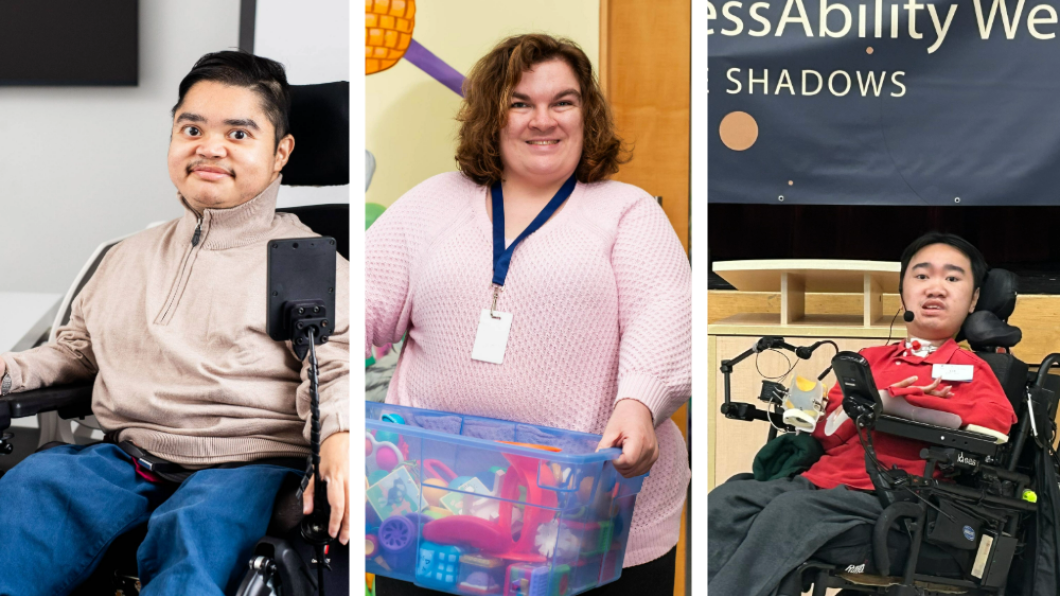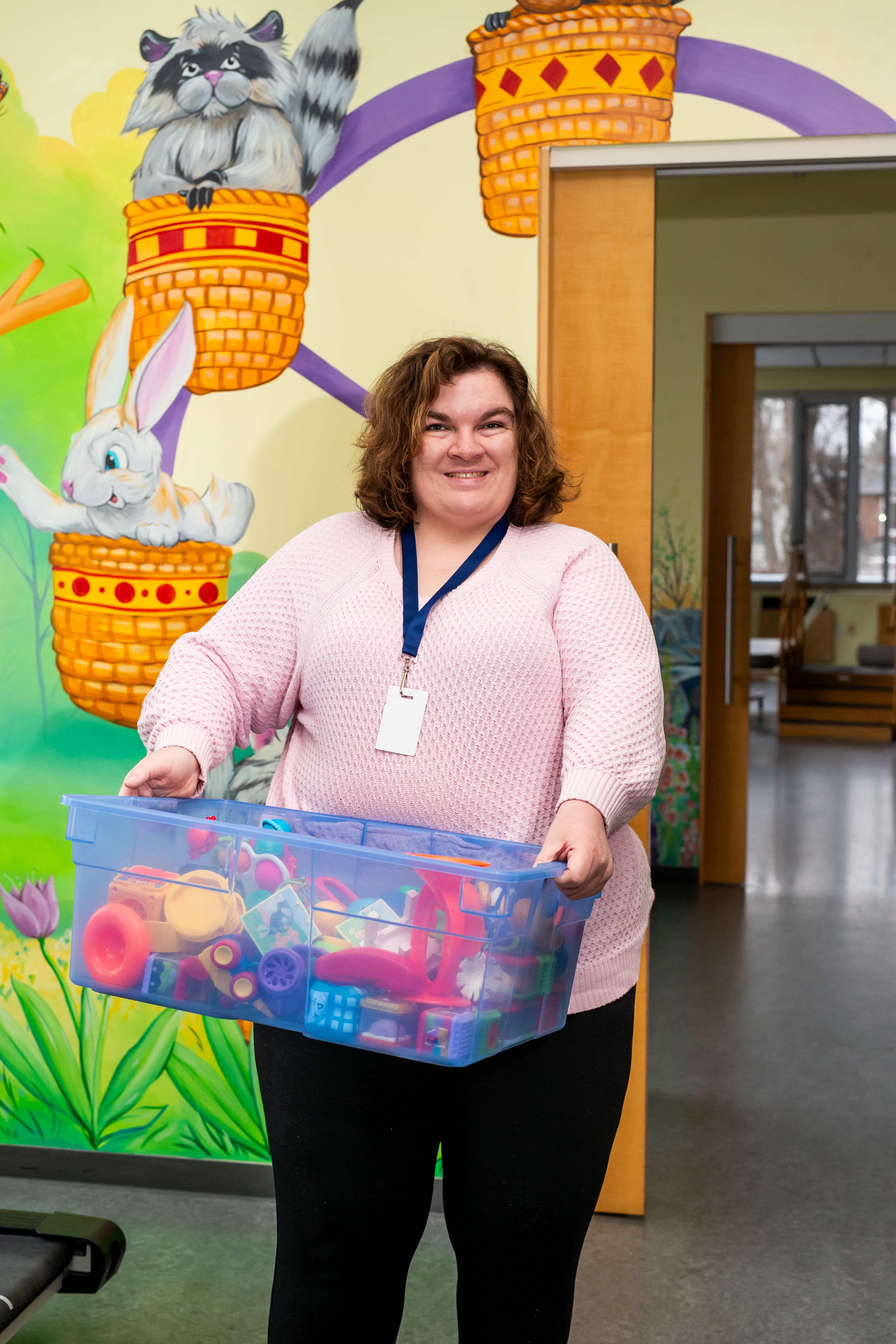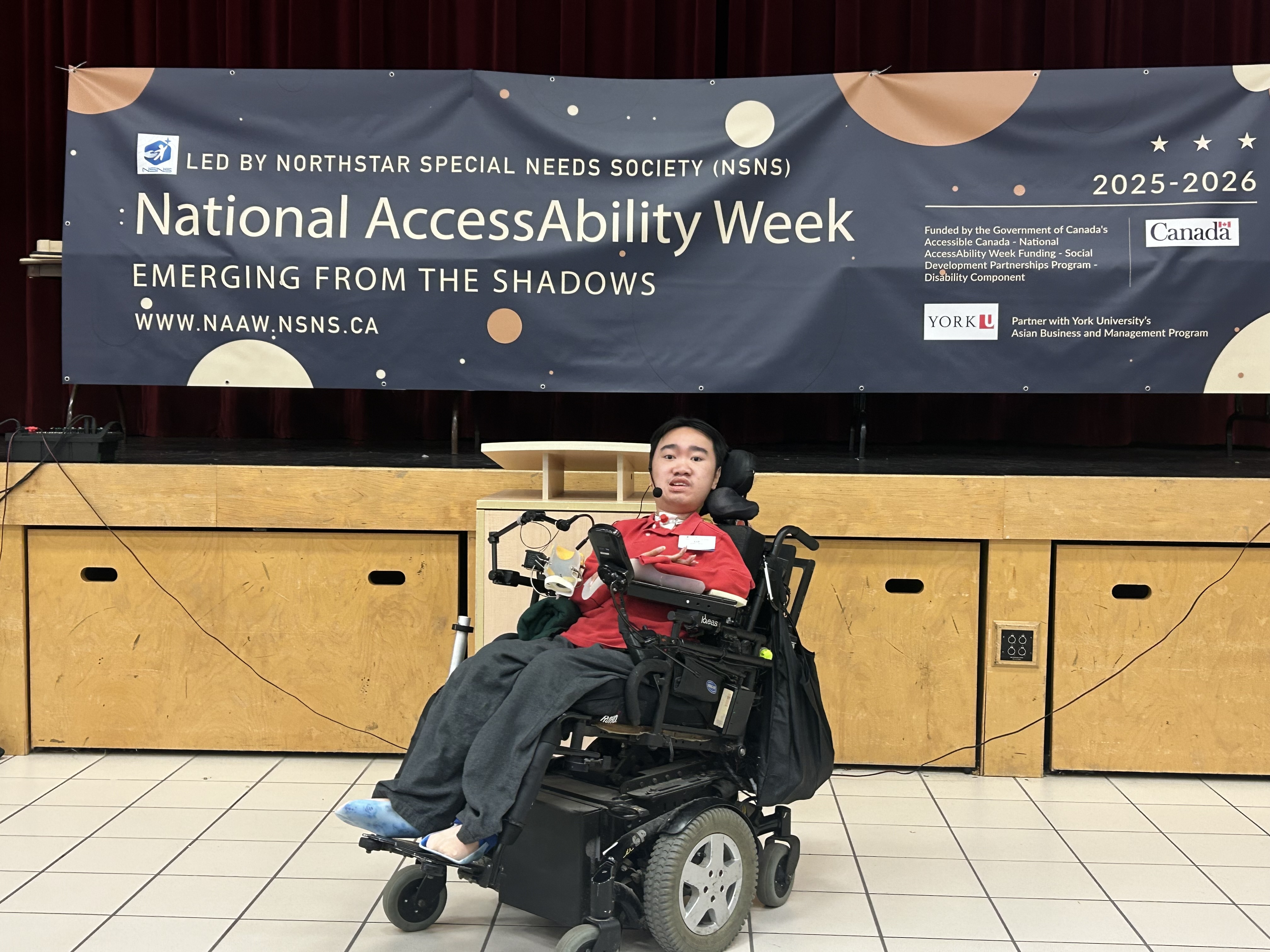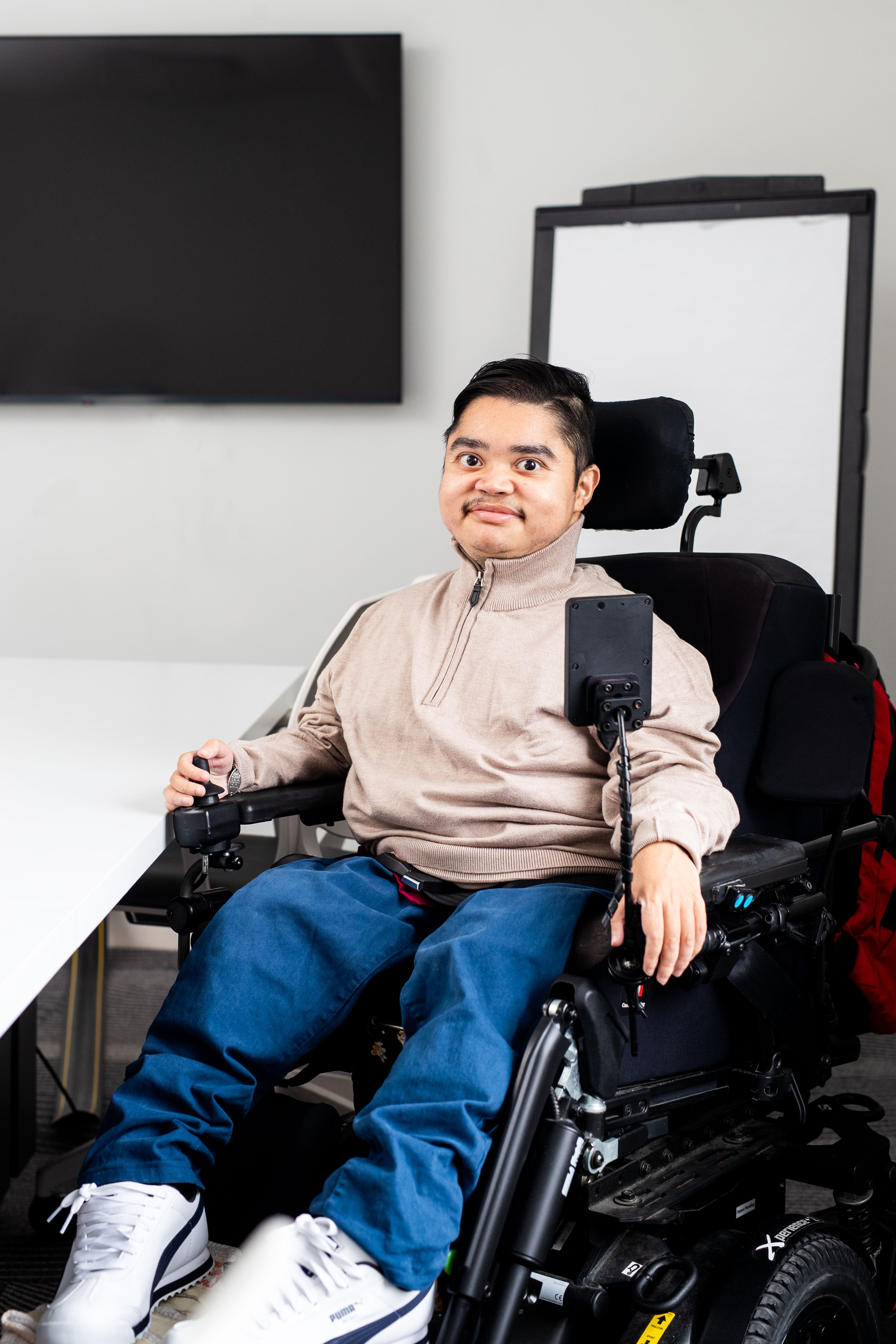
Madeline, Jeffrey and Ivan dare you to challenge what you think you know about the workplace
From volunteering to student placements, Holland Bloorview is committed to connecting youth with disabilities to early career opportunities.
Carolyn McDougall often thinks about the importance of inclusive workplaces for youth with disabilities, and how feeling included at work can influence a youth’s sense of self. Through Youth@Work, which introduces youth to areas of interest through two-week work experiences, and Ready to Work, a summer-long placement program with employer partners, Carolyn and her team are committed to helping youth with disabilities find the work environments in which they can thrive.
“As humans, we like to be needed by other people and contribute, and that that has a positive effect on our mental health,” Carolyn says.
“In the context for our Employment Pathways programs, where youth are in high school and starting to see friends or siblings having employment experiences, but they have not been able to get into co-op or get a volunteer position or a paid summer job, they may internalize that and wonder, ‘How can I?’ So our programs are about creating experiences as a base for self-awareness and self-confidence.”
In partnership with our donors and other organizations, Holland Bloorview is spreading best practices and models for youth employment inclusion across the province, to promote access to meaningful work experiences for youth like Madeline, Ivan and Jeffrey.
Meet Madeline

Madeline participated in Holland Bloorview’s Youth@Work and Ready to Work programs before going on to enroll in the Early Childhood Education program at George Brown College.
How did you get into Early Childhood Education (ECE)?
Madeline: I always knew I wanted to go into that area. I have known it since I was in Grade 4, when my special education teacher suggested that I help out in the kindergarten classroom at recess.
What do you think are the most important skills for any ECE?
Madeline: In my Ready to Work placement, I learned that it's not just all fun and games. There's more to day care than playing with the kids. There's cleaning, documents, changing diapers, doing snack or activities, setting up and cleaning up and making sure everyone's safe and accounted for. Also, communication is always a big one with ECEs. We have to communicate with each other.
How has Holland Bloorview helped you prepare for a career as an ECE?
Madeline: During my Ready to Work placement, I had a job coach with me from Holland Bloorview. They were supporting me with learning the routine and helping me with the schedules. They made a schedule for me.
How can co-workers and employers can help you succeed in the workplace?
Madeline: They can be a bit more understanding. It might take some people a little more time, but they can get the job done.
What would your ideal work environment look like?
Madeline: A good environment, positive energy and people who make me feel welcome and included.
Meet Jeffrey

Currently a Senior Policy Advisor in the Ontario Public Service, and a former inclusion, diversity, equity, accessibility and anti-racism (IDEAA) program coordinator, Jeffrey got his start in the Employment Pathways programs at Holland Bloorview.
Can you describe the work you are doing today?
Jeffrey: I work on policy and program development, and all that work contributes to the government's commitment to serving marginalized populations.
How did you get into this kind of work?
Jeffrey: I was first exposed to IDEAA work through Holland Bloorview’s programming. Across Youth@Work and Ready to Work, I was doing placements around disability employment, equity and inclusion.
What motivates you to continue working in this area?
Jeffrey: To me, IDEAA-related issues are so complex, and I think that is what is most interesting, having the opportunity to work on the world's hardest and most complicated challenges.
As well as introducing you to IDEAA as a career path, how did Youth@Work and Ready to Work set you up for your current role?
Jeffrey: One of the things that I learned was the importance of building strong relationships with people. A lot of times you collaborate with people across an organization or outside of an organization. You have to be able to negotiate challenging issues and potentially solve problems. And I think if there's something that reinforced the importance of collaboration, it would be my experiences across the programs at Holland Bloorview.
Meet Ivan

Ivan found his voice thanks to programs at Holland Bloorview like Youth@Work, which pushed him out of his comfort zone and into a burgeoning career as a content creator.
What kind of content are you creating?
Ivan: I have been putting out a lot of content around ways to overcome anxiety and depression. I’m also trying to get into the motivational speaking field, and I’m publishing a book soon. I hope to have it released by March of next year.
How did participating in Youth@Work prepare you for this kind of work?
Ivan: I was in Spiral Garden, where I helped with the administration work, and then another company doing data entry. I think it helped in trying different things and making myself more confident. Youth@Work paved the way to putting myself out there and seeing how I can get out of my comfort zone.
What are some of the skills you learned in Youth@Work that you still use today?
Ivan: I think the big one for me was, when or whether to tell employers if you have a disability. Also, asking for accommodations. Not so much to say, “I can't do this,” or “I can’t do that,” but saying, “With this certain type of help, I can excel in this way.”
What is a sign of an inclusive workplace?
Ivan: Employees feeling comfortable enough to share what they need to share— not oversharing, but sharing information so that they get the appropriate help, or accommodations they need, to do better at work.